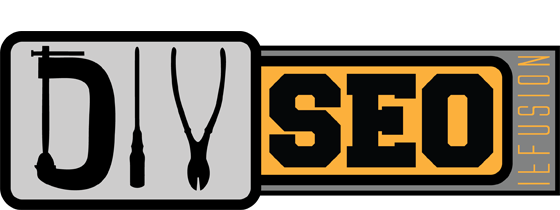Do It Yourself SEO
 November 10, 2010 | By Ilfusion Team
November 10, 2010 | By Ilfusion Team
In SEO, like in life, the old adage is true, “You have to give a little to get a little.” The goal with SEO on your website is to increase the organic search rank of your site while not being penalized for shady practices. Organic search rank is the position that your website achieves in non-paid search results when certain phrases are typed into the search engine. Organic ranking requires a significant investment in time, whether you are taking the DIY approach or using an agency to help with SEO efforts. Simply launching a site and submitting the pages to be listed in search engines will not bring a flood of new traffic to your site with organic search results. Search engines follow rules that make them the most money and keep people coming back so they are unlikely to change their organic results quickly. If you think of a website like a tree- the act of planting the seed will not produce a full-grown tree. You have to add the fertilizer (tweak the tags, and optimize pages), prune the leaves (eliminate complexity and dead ends), water the tree (add relevant and interesting content) and most importantly, wait!
One of the ways you can easily do some DIY SEO is through back-links. Back-links are links on partner sites which link back to your site. These can be any links that direct traffic to your site from somewhere else. Sites such as associations, directories, paid services, etc. are good sources for back-links. You should also be open to partner sites having their link on your site to get your link on their site. In other words, “You scratch my back, I’ll scratch yours.” Another very important factor which search engines take in to account is the amount of traffic that comes to the site and total time spent by those visitors. How many people visit the site and how much time they spend absorbing your content lets search engines see that your site is relevant to others. Search engines index the most relevant sites first because they are the most likely to be what you’re looking for and search engines make money (there’s that money thing again…) by consistently showing relevant results to users. Some businesses think it is beneficial to have people just click on their site all day. Search engines frown on this, and they can tell that it is happening. This kind of traffic also makes your actual targeted website results harder to measure.
Another effective DIY tool to help boost your ranking is to be active on blogs and in forums around the internet. Being active can be as simple as commenting on posts on a blog you come across that is related to your business. Be sure to leave your site address in your signature on the post. Answer questions in forums. Become a TRUSTED authority and word will spread about you, creating more traffic for your site.
Be active on social media platforms to stay relevant. “Like” other businesses and be active on their pages. Become a fan or follower of them and they may become a fan or follower of your business. Re-post relevant items you find, give the author credit and others may do the same for you. Blog about relevant topics. Search engines love constant updates and relevant information that keeps your site fresh and interesting (do you think they don’t see that “last updated in 2003” line at the bottom of your site?). Mention other businesses or partners and add links to their sites within a blog post if it makes sense. Within your website and blog posts make sure you give your pictures, videos, and media relevant names. Don’t leave the the default name- it’s a common lazy mistake. This helps search engines find keywords within the name. Avoid using copy and paste, keep traffic on your site by writing your own content or hire an intern to do it for you (just proof it first!). Use keywords in your blog articles but don’t overdo it. A few carefully selected key phrases are best to use and if your customers are in a specific geographical location, always include locations.
Finally, don’t try to take the “quick and dirty” way out. Do not try to manipulate search engines by cloaking or stuffing keywords etc. The search engines can tell when you are doing it and can punish your site. Plus the algorithms are getting more sophisticated every day and doing those practices are outdated and pointless. This is what we call “black hat SEO”. NEVER use black hat SEO. These are practices that will get you banned from search engines or at least deflate your organic listing results heavily. It takes time and commitment to improve your own SEO, but in the end it’s worth the effort and can generate valuable site traffic.
Filed in: Articles, Web

